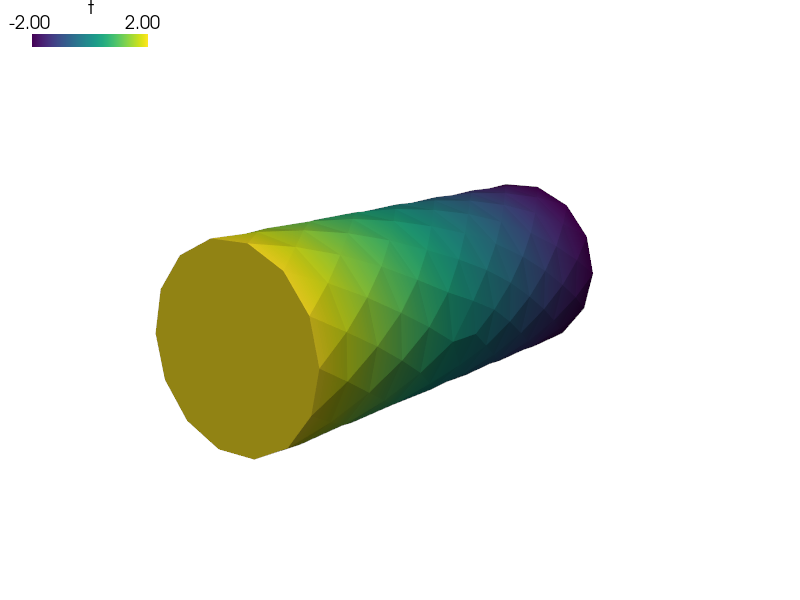diffusion/poisson_short_syntax.py¶
Description
Laplace equation using the short syntax of keywords.
See diffusion/poisson.py for the long syntax version.
Find  such that:
such that:


r"""
Laplace equation using the short syntax of keywords.
See :ref:`diffusion-poisson` for the long syntax version.
Find :math:`t` such that:
.. math::
\int_{\Omega} c \nabla s \cdot \nabla t
= 0
\;, \quad \forall s \;.
"""
from sfepy import data_dir
filename_mesh = data_dir + '/meshes/3d/cylinder.mesh'
materials = {
'coef' : ({'val' : 1.0},),
}
regions = {
'Omega' : 'all', # or 'cells of group 6'
'Gamma_Left' : ('vertices in (x < 0.00001)', 'facet'),
'Gamma_Right' : ('vertices in (x > 0.099999)', 'facet'),
}
fields = {
'temperature' : ('real', 1, 'Omega', 1),
}
variables = {
't' : ('unknown field', 'temperature', 0),
's' : ('test field', 'temperature', 't'),
}
ebcs = {
't1' : ('Gamma_Left', {'t.0' : 2.0}),
't2' : ('Gamma_Right', {'t.0' : -2.0}),
}
integrals = {
'i' : 2,
}
equations = {
'Temperature' : """dw_laplace.i.Omega( coef.val, s, t ) = 0"""
}
solvers = {
'ls' : ('ls.scipy_direct', {}),
'newton' : ('nls.newton',
{'i_max' : 1,
'eps_a' : 1e-10,
}),
}
options = {
'nls' : 'newton',
'ls' : 'ls',
}